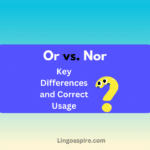Many people wonder whether busses or buses is the correct spelling, and the answer depends on modern English usage. The correct plural of “bus” is buses, while “busses” is now considered an outdated form that usually refers to kisses. Even though both spellings exist, only one is widely accepted in English language variations today.
The confusion comes from spelling differences in history and regional changes between British English vs American English. In the past, “busses” was sometimes used for bus transportation, but today, “buses” is the correct and standard spelling. Knowing the right form helps avoid common spelling mistakes and improves writing accuracy.
This article explains the meaning, spelling, and grammar rules of “buses” and “busses.” You’ll learn about their definitions, usage in sentences, and real-world examples. Whether you’re talking about bus travel, bus routes, or public transportation, using the right spelling is important. Let’s explore the correct usage and clear up any confusion.
Buses or Busses – Which One Is Correct?

The words buses and busses often confuse English learners. The correct plural of “bus” is buses in most cases. “Busses” can be a correct spelling, but it is rarely used today. The confusion happens because English has many spelling variations and grammar rules.
The word bus comes from “omnibus,” which means “for everyone” in Latin. Over time, it was shortened to “bus.” The correct plural form follows standard English spelling rules. That is why “buses” is the accepted plural form. In some cases, “busses” is used, but it refers to kisses instead of bus transportation.
Busses or Buses: Meaning & Definitions
The word buses refers to multiple vehicles used in public transportation. These vehicles carry passengers on fixed bus routes. Bus travel is common in cities and rural areas worldwide. The term “buses” is used in British English vs American English with the same meaning.
The word busses is a rare spelling of “buses,” but it is mostly used to mean kisses. For example, “She gave him two busses on the cheek.” This usage is uncommon, and many people avoid it because it creates common spelling mistakes in writing.
Synonyms for Buses and Busses
The word “bus” refers to a large vehicle used for public transportation, while “busses” is an outdated spelling and is now mainly used as a verb meaning “to kiss.” There are various synonyms for buses, depending on the context.
Synonyms for Buses (Public Transportation)
Many words can be used instead of buses, especially when referring to bus travel, bus services, or public transportation. Below is a table with different synonyms:
| Synonym | Meaning/Context |
|---|---|
| Coach | A large bus used for long-distance travel. |
| Shuttle | A bus that travels between two fixed points regularly. |
| Minibus | A small bus used for fewer passengers. |
| Transit vehicle | A general term for public transportation buses. |
| Omnibus | An old-fashioned term for a bus. |
| Passenger vehicle | A vehicle used for transporting people. |
| School bus | A bus used for transporting students. |
| Double-decker | A two-level bus, common in London and other cities. |
| Public transport | A broad term for transportation used by the public. |
| City bus | A standard bus operating in urban areas. |
| Motorcoach | A luxury bus used for long trips and tours. |
| Trolleybus | A bus powered by electricity from overhead wires. |
Each of these synonyms has specific use cases in different regions and forms of bus transportation. While “busses” is rarely used, understanding the synonyms of buses helps in using the correct term for different situations.
Bussed or Bused: What’s the Difference?
The word bused is the correct past tense of “bus.” It means transported by bus. For example, “The students were bused to school.” In this sentence, “bused” refers to bus transportation.
The word bussed is the past tense of “buss,” which means “kiss.” For example, “He bussed her on the forehead.” This form is not commonly used today, and “kissed” is preferred instead.
American vs British English: Spelling Differences
British English vs American English have different spelling rules, but in this case, both follow the same pattern. The plural of bus is “buses” in both versions of English. Busses is considered incorrect in modern English.
Many words have different spellings in British English vs American English. For example:
| American English | British English |
|---|---|
| Color | Colour |
| Center | Centre |
| Traveler | Traveller |
| Theater | Theatre |
However, “buses” remains the same in both languages. Some people mistakenly write “busses,” but this is considered incorrect in most cases.
Usage of “Buses” and “Busses” in Sentences

The correct plural of bus is buses, while busses is mostly used as a verb meaning “to kiss.” Although “busses” was sometimes used as a plural form in older English, it is now considered incorrect in modern grammar rules. Below is a table showing the correct usage of buses vs busses in different contexts.
Usage of “Buses” and “Busses” in Sentences
| Word | Correct Usage in a Sentence |
|---|---|
| Buses | The city added more buses to improve public transportation. |
| Buses | Tourists use double-decker buses for sightseeing in London. |
| Buses | School buses pick up students every morning. |
| Busses | The actor busses his co-star in the final scene. |
| Buses | Long-distance bus travel is cheaper than flights. |
| Buses | The government is investing in eco-friendly bus systems. |
The table above makes it clear that buses is the correct plural form for transportation, while busses is used only as a verb. If you’re referring to bus routes, bus services, or the bus industry, always use buses to avoid common spelling mistakes.
Examples of Buses and Bussed in Sentences
To understand the correct usage, here are some examples:
- The buses arrived at the bus station early in the morning.
- We took two buses to reach the museum.
- The football team was bused to the stadium for the final match.
- She bussed him on the cheek before saying goodbye. (Rare usage)
- Many bus passengers prefer comfortable bus services for long-distance travel.
In these examples, “buses” refers to vehicles, while “bussed” means “kissed” in the last sentence.
Common Errors and How to Avoid Them
Many people make common spelling mistakes when using “buses” and “busses.” Here are some key points to remember:
- Use buses when talking about multiple vehicles.
- Use bused when referring to transportation by bus.
- Avoid “busses” unless you are referring to kisses, which is rare.
- Check spelling carefully in professional and academic writing.
Why the Correct Spelling Matters
Using the wrong spelling can lead to misunderstandings. In bus industry reports, government documents, and bus travel guides, accuracy is important. Writers, journalists, and students must use correct grammar rules to avoid confusion.
For example, in public transportation signs, “busses” would be incorrect because it might make passengers think of “kisses” instead of vehicles. This is why transport companies and bus services always use “buses” in official documents.
Frequently Asked Questions
1. Why do some people spell it “busses” instead of “buses”?
The confusion comes from spelling rules where some words double the final consonant before adding “es.” However, “buses” does not follow this pattern. “Busses” refers to kisses, not the plural of “bus.”
2. Is “busing” or “bussing” correct for transportation?
“Busing” is correct when referring to transportation. “Bussing” relates to kissing, making “busing” the only proper form in transit contexts.
3. Do British and American English spell “buses” differently?
No, “buses” is the correct plural in both British and American English. The spelling remains the same across these English variations.
Final Thoughts: Buses or Busses in Modern English
In modern English, buses is the correct and standard plural form of “bus.” The spelling “busses” is outdated and rarely used, except when referring to kisses. English language learners should always use “buses” in writing and conversations.
Spelling differences exist between American and British English, but this word remains the same in both versions. Understanding proper spelling and grammar rules is essential for clear communication, especially in professional writing and bus travel guides. Always double-check your spelling to avoid common errors and improve your English proficiency.
Sources
- Merriam-Webster Dictionary
Merriam-Webster is a widely respected dictionary with authoritative definitions, spellings, and grammatical rules. According to this source, “buses” is the standard plural form of “bus,” while “busses” can refer to multiple kisses but is an outdated alternative spelling for buses. The dictionary also highlights differences in American and British English usage, reinforcing that “buses” is the preferred spelling in modern writing. - Oxford English Dictionary
The Oxford English Dictionary is one of the most trusted resources for understanding language history, changes, and correct spellings. It explains that “buses” became the dominant spelling in the early 20th century, while “busses” was once an acceptable variation. The OED also discusses how British English and American English have minor spelling differences, but in this case, both primarily use “buses” today. - Grammarly Blog
Grammarly is a well-known grammar and spell-checking platform that helps writers maintain accuracy. Their blog provides insights into common spelling mistakes, including confusion between “buses” and “busses.” It emphasizes that “buses” is the correct plural for “bus,” while “busses” refers to kisses. Grammarly also provides usage examples, helping learners and writers avoid common mistakes in professional and academic settings.







